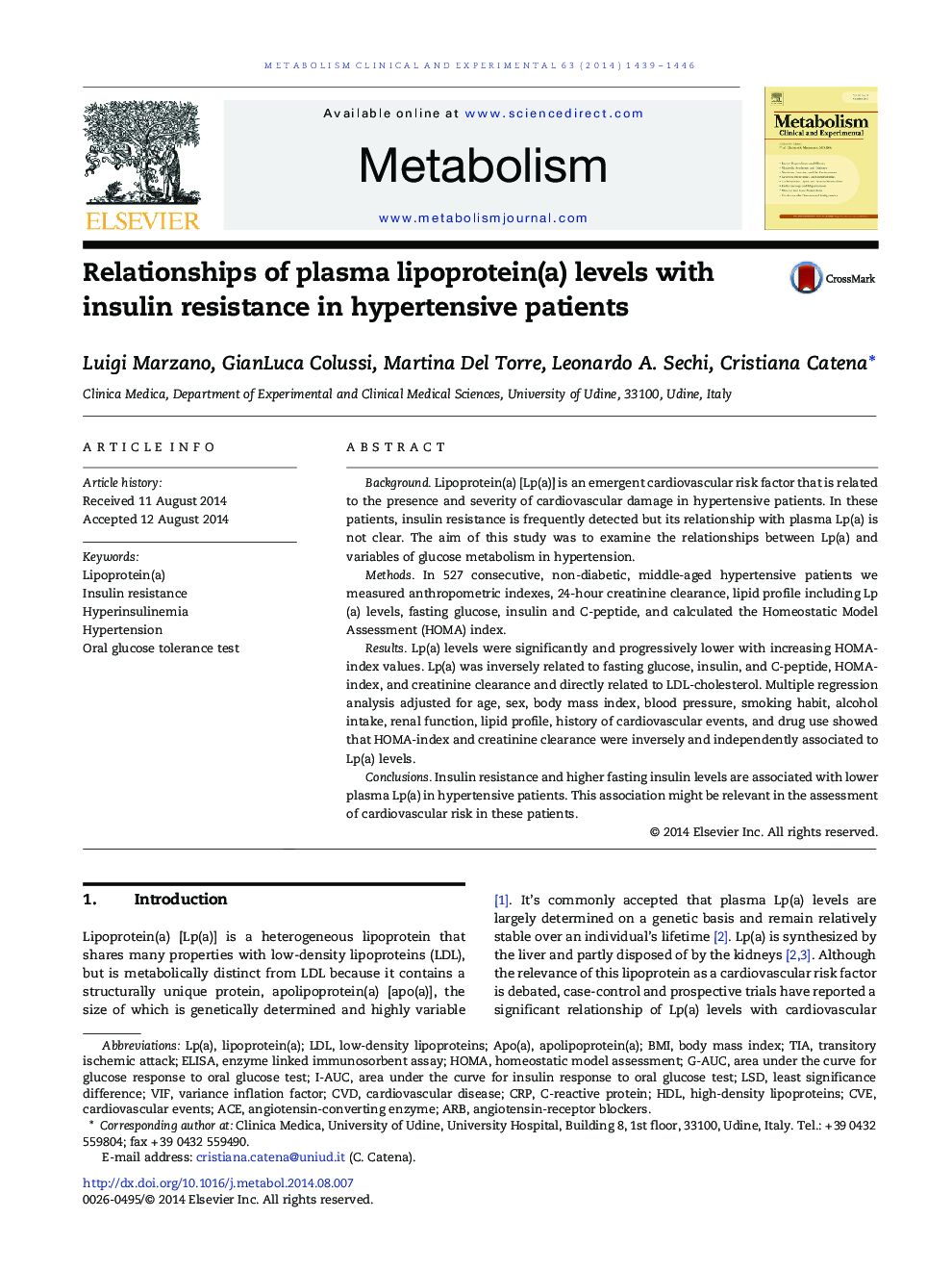| Article ID | Journal | Published Year | Pages | File Type |
|---|---|---|---|---|
| 2805625 | Metabolism | 2014 | 8 Pages |
BackgroundLipoprotein(a) [Lp(a)] is an emergent cardiovascular risk factor that is related to the presence and severity of cardiovascular damage in hypertensive patients. In these patients, insulin resistance is frequently detected but its relationship with plasma Lp(a) is not clear. The aim of this study was to examine the relationships between Lp(a) and variables of glucose metabolism in hypertension.MethodsIn 527 consecutive, non-diabetic, middle-aged hypertensive patients we measured anthropometric indexes, 24-hour creatinine clearance, lipid profile including Lp(a) levels, fasting glucose, insulin and C-peptide, and calculated the Homeostatic Model Assessment (HOMA) index.ResultsLp(a) levels were significantly and progressively lower with increasing HOMA-index values. Lp(a) was inversely related to fasting glucose, insulin, and C-peptide, HOMA-index, and creatinine clearance and directly related to LDL-cholesterol. Multiple regression analysis adjusted for age, sex, body mass index, blood pressure, smoking habit, alcohol intake, renal function, lipid profile, history of cardiovascular events, and drug use showed that HOMA-index and creatinine clearance were inversely and independently associated to Lp(a) levels.ConclusionsInsulin resistance and higher fasting insulin levels are associated with lower plasma Lp(a) in hypertensive patients. This association might be relevant in the assessment of cardiovascular risk in these patients.
